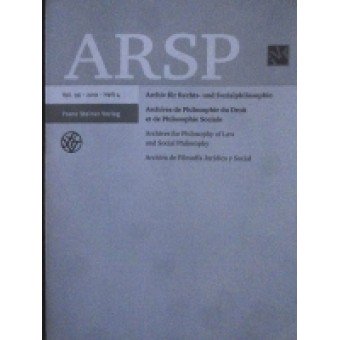5,14
Excl. BTW: 4,72
- Excl. BTW:
- 4,72
- Model:
- Paperback, English
Dit boekje verscheen niet in het Nederlands.
Special edition from Archiv für Rechts- und Sozialphilosophie.
19 pages
In this article the naturalistic fallacy is challenged. It is a barrier that should be removed in order to make a necessary next step towards thinking about the biological foundations of law.
Moore’s naturalistic fallacy and Hume’s is ought-problem imply a barrier between law and biology. However, we are constantly deriving the ought from the is. Biology can explain why people sometimes value killing another human being as ‘good’ (i.e. ‘ought’) and sometimes as ‘bad’ (i.e. ‘ought not’). Killing the enemy is good because it saves our children, killing my neighbour is bad because it destabilises society. Morals and rules have evolved from biological facts and are the result of interaction between genes and their surroundings. They are a product of our brain as all interpretations of facts are. As a result, ‘goodness’ can be regarded as a biological phenomenon. Inevitable as this conclusion may be, it looks like scientists hesitate to accept it.

